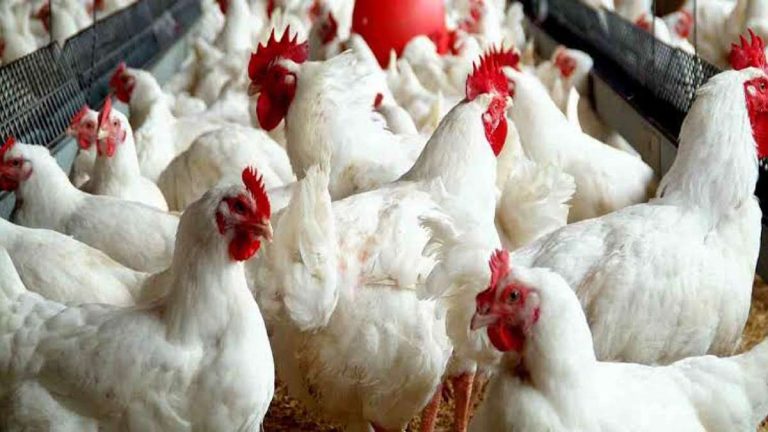Poultry farming is one of the fastest-growing agribusinesses in Nigeria. With a consistent demand for poultry products like eggs and chicken meat, starting a poultry business can be a profitable venture if done correctly.
- CONTINUE READING BELOW -
This comprehensive guide will take you through the steps, challenges, and strategies to start and sustain a successful poultry farm in Nigeria.
Why Poultry Farming is a Profitable Business in Nigeria
Starting a poultry business in Nigeria has many advantages:
- Growing Demand: Nigerians consume millions of eggs and chicken daily, creating a high demand.
- Quick Returns: Poultry birds, particularly broilers, mature quickly (within 6–8 weeks), allowing fast income generation.
- Diverse Market: From households and supermarkets to restaurants and food processing companies, there’s a broad market for poultry products.
- Low Entry Barrier: You can start small with minimal capital and scale as you grow.
- Job Creation: The business offers employment opportunities, contributing to economic growth.
Types of Poultry Farming
There are various types of poultry farming in Nigeria. Your choice depends on your resources, expertise, and market demand.
- Layer Farming
- Focus: Raising hens for egg production.
- Pros: Steady income from daily egg sales.
- Cons: Requires longer-term investment and management.
- Broiler Farming
- Focus: Raising chickens for meat production.
- Pros: Quick turnover; ready for market in 6–8 weeks.
- Cons: Prone to diseases, requiring close monitoring.
- Breeding
- Focus: Producing chicks for sale to other poultry farmers.
- Pros: High profit margins.
- Cons: Requires specialized knowledge.
- Mixed Farming
- Focus: Combining layers, broilers, and breeders to diversify income.
- Pros: Mitigates risk; maximizes profitability.
- Cons: Requires significant investment and management.
How to Start a Profitable Poultry Business in Nigeria
Step 1: Conduct Market Research
Understanding your target market and competitors is key to success:
- Who Are Your Customers? Identify your primary buyers—households, retailers, restaurants, or wholesalers.
- What’s the Market Demand? Learn about seasonal trends; demand for poultry increases during festive periods like Christmas and Easter.
- Who Are Your Competitors? Study existing farms to identify gaps you can fill.
Step 2: Write a Business Plan
A solid business plan is your roadmap to success. Include:
- Objectives: Clear goals such as raising 500 broilers in the first three months.
- Cost Analysis: Detailed budget covering housing, equipment, feed, and labor.
- Marketing Plan: Strategies to attract and retain customers.
- Revenue Projections: Calculate expected profits based on current market prices.
Step 3: Secure Funding
Starting a poultry business requires capital. Consider these options:
- Personal Savings: Start small if funds are limited.
- Family and Friends: Seek support from trusted sources.
- Loans and Grants: Apply for programs like the Central Bank of Nigeria’s agricultural loans or private sector grants.
Step 4: Choose a Suitable Location
Your farm’s location is critical. Consider:
- Proximity to Markets: Reduce transport costs by locating near your buyers.
- Security: Protect your farm from theft and predators.
- Water Supply: A reliable water source is essential for feeding and cleaning.
- Accessibility: Ensure smooth delivery of supplies and transportation of products.
Step 5: Build or Rent Poultry Housing
Proper housing ensures your birds remain healthy and productive.
- Deep Litter System: Birds move freely on the floor with bedding materials.
- Battery Cage System: Birds are confined to cages, increasing efficiency and reducing waste.
Key Features of Poultry Housing:
- Adequate ventilation.
- Easy cleaning and maintenance.
- Protection from extreme weather.
Step 6: Purchase Equipment
Invest in essential tools and equipment:
- Feeders and Drinkers: Minimize waste.
- Brooders: Keep chicks warm.
- Egg Trays: For storage and transportation.
- Cleaning Tools: Maintain hygiene and prevent diseases.
Step 7: Source Quality Chicks
The quality of your chicks impacts your success.
- Buy from Reputable Hatcheries: Ensure healthy, vaccinated chicks.
- Choose the Right Breed: Match your farming goals with breeds suited for egg-laying or meat production.
Step 8: Feed and Nutrition
Proper feeding ensures healthy growth and high productivity.
- Starter Feed: For chicks aged 0–6 weeks.
- Grower Feed: For pullets aged 7–18 weeks.
- Layer Feed: For egg-laying hens.
Tips:
- Use vitamins and minerals to boost immunity.
- Store feed in a dry place to avoid spoilage.
Step 9: Implement Health Management
- Vaccination: Follow a strict vaccination schedule to prevent diseases.
- Daily Monitoring: Check for signs of illness, such as reduced activity or appetite.
- Veterinary Support: Partner with a reliable vet for advice and treatment.
Cost Breakdown for Starting a Poultry Business
| Item | Cost (₦) |
|---|---|
| Land Lease or Rent | 50,000 – 100,000 |
| Poultry Housing | 70,000 – 150,000 |
| Chicks (100 Broilers) | 50,000 – 70,000 |
| Feed (3 Months) | 80,000 – 100,000 |
| Equipment | 30,000 – 50,000 |
| Vaccination and Health | 10,000 – 20,000 |
| Miscellaneous | 20,000 – 30,000 |
| Total | 310,000 – 520,000 |
Challenges in Poultry Farming
- High Feed Costs: Feeds can account for up to 70% of expenses.
- Disease Outbreaks: Can lead to significant losses.
- Market Price Fluctuations: Seasonal changes can affect profits.
- Lack of Expertise: Poor management can impact productivity.
Frequently Asked Questions (FAQs)
Q: How much capital do I need to start a poultry farm?
A: You can start with as little as ₦100,000 for a small-scale farm.
Q: How do I prevent diseases in my poultry farm?
A: Maintain proper hygiene, vaccinate regularly, and monitor bird health daily.
Q: Where can I sell my poultry products?
A: Households, local markets, restaurants, and supermarkets.
Conclusion
Starting a profitable poultry business in Nigeria requires careful planning, dedication, and continuous learning. By implementing the steps outlined in this guide and avoiding common mistakes, you can build a sustainable and lucrative business. Remember, starting small and focusing on quality will pave the way for long-term success. Now is the perfect time to take that first step.
